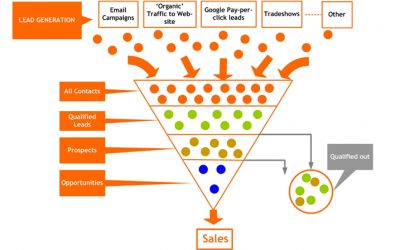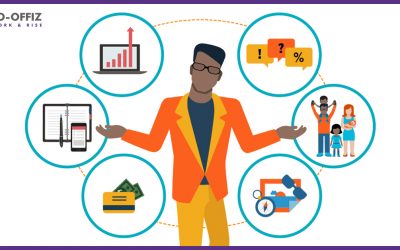18 Key Social Media Metrics to Track in 2025
In the ever-evolving digital landscape, understanding and tracking social media metrics is essential for businesses seeking to enhance their online presence. These metrics provide valuable insights into how audiences interact with content, what drives engagement, and how campaigns contribute to overall business objectives. Without monitoring the right social media metrics, businesses risk missing critical opportunities to optimize their strategies and maximize ROI.
In this comprehensive guide, we’ll explore the essential social media metrics that every brand should track in 2025 to stay competitive and achieve measurable success.
Most Important Social Media Metrics to Track in 2025
1. Reach
Reach measures the total number of unique users who have seen your content.
Example: If your Instagram post has a reach of 10,000, it means 10,000 unique accounts have viewed your content.
Why It Matters: A high reach indicates strong content visibility, which is the first step in driving awareness.
Actionable Tip: Boost reach by posting during peak activity times, collaborating with influencers, and using trending hashtags. Leveraging platform-specific features like Instagram Reels or LinkedIn Articles can also help.
2. Impressions
Impressions refer to the total number of times your content is displayed, regardless of whether it was clicked.
Example: A single user may see your Facebook ad five times, resulting in five impressions.
Why It Matters: High impressions indicate strong visibility, but low engagement alongside high impressions may signal content fatigue.
Actionable Tip: Regularly refresh ad creatives to maintain viewer interest. Try different formats, such as videos and carousel posts.
3. Engagement
Engagement measures interactions like likes, comments, shares, and clicks.
Example: A tweet with 500 likes, 50 retweets, and 20 replies has a high engagement rate.
Why It Matters: High engagement shows your content resonates with your audience.
Actionable Tip: Foster engagement by asking questions, running polls, and responding promptly to comments. For instance, a clothing brand might ask followers to share their favorite fashion trends.
4. Click-Through Rate (CTR)
CTR is the percentage of users who clicked a link compared to those who viewed the post.
Example: If your LinkedIn post was viewed 1,000 times and received 100 clicks, your CTR is 10%.
Why It Matters: A strong CTR indicates effective calls-to-action (CTAs).
Actionable Tip: A/B test different headlines, images, and CTAs. Use phrases like “Discover Now” or “Limited Time Offer” to create urgency.
5. Conversion Rate
Conversion rate measures the percentage of users who completed a desired action after clicking on your content.
Example: A TikTok ad generating 50 purchases from 1,000 clicks has a 5% conversion rate.
Why It Matters: High conversion rates demonstrate effective campaigns.
Actionable Tip: Optimize landing pages with clear CTAs and fast loading times. Use retargeting ads for users who didn’t convert initially.
6. Bounce Rate
Bounce rate is the percentage of users who leave your website after viewing only one page.
Example: A high bounce rate on a blog linked from Instagram could indicate irrelevant content.
Why It Matters: A high bounce rate suggests users aren’t finding your site valuable.
Actionable Tip: Match social media links with relevant landing pages. Ensure fast loading times and mobile-friendly designs.
7. Time on Site
This metric tracks how long users stay on your website after arriving via social media.
Example: Visitors from Pinterest spend an average of 3 minutes on your product page.
Why It Matters: Longer visits suggest valuable and engaging content.
Actionable Tip: Create interactive elements like quizzes and videos. Ensure seamless navigation.
8. Follower Growth
Follower growth measures how quickly your social media audience is expanding.
Example: Gaining 1,000 new followers on Twitter in a month signals strong growth.
Why It Matters: A growing follower base increases potential reach.
Actionable Tip: Host giveaways or partner with influencers. Engage consistently with your audience.
9. Share of Voice (SOV)
SOV compares your brand’s mentions to competitors’ mentions.
Example: Your brand holds 30% SOV, while your closest competitor holds 20%.
Why It Matters: Higher SOV means greater brand visibility.
Actionable Tip: Join trending conversations and leverage branded hashtags.
10. Sentiment Analysis
This metric evaluates whether mentions of your brand are positive, negative, or neutral.
Example: Positive comments on your latest campaign signal customer satisfaction.
Why It Matters: Understanding sentiment helps identify areas of success and improvement.
Actionable Tip: Address negative feedback quickly to show responsiveness.
11. Audience Demographics
This includes age, gender, location, and interests of your audience.
Example: 70% of your LinkedIn followers are professionals aged 25-34.
Why It Matters: Accurate demographics enable tailored marketing strategies.
Actionable Tip: Use analytics tools to refine audience profiles. If your audience skews younger, experiment with trend-driven content.
12. Influencer Reach
Influencer reach measures the audience size and engagement rates of influencers promoting your brand.
Example: An influencer’s Instagram Story about your product reaches 50,000 users.
Why It Matters: Influencer campaigns amplify your message.
Actionable Tip: Choose influencers whose audience aligns with your brand.
13. Social Listening
Social listening monitors mentions of your brand, competitors, and industry trends.
Example: Customers praising your product on Reddit indicate high satisfaction.
Why It Matters: Social listening uncovers valuable feedback.
Actionable Tip: Monitor niche communities and forums. Use insights to improve offerings.
14. Customer Service Response Time
This tracks how quickly your team responds to queries or complaints.
Example: Responding to 80% of inquiries within 30 minutes enhances trust.
Why It Matters: Faster response times improve satisfaction.
Actionable Tip: Use chatbots for common questions.
15. Cost Per Click (CPC)
CPC measures the cost of each click on your paid ads.
Example: Spending ₹500 for 100 clicks results in a CPC of ₹5 per click.
Why It Matters: Low CPC ensures efficient budget use.
Actionable Tip: Refine targeting to reduce costs.
16. Return on Investment (ROI)
ROI evaluates the profitability of your social media campaigns.
Example: Generating ₹50,000 in sales from a ₹10,000 ad spend yields a 400% ROI.
Why It Matters: Strong ROI validates effective strategies.
Actionable Tip: Use tracking links to attribute revenue.
17. Video Engagement
Video engagement includes views, watch time, and interactions.
Example: A YouTube video with 10,000 views and 1,000 likes has a 10% engagement rate.
Why It Matters: High engagement boosts visibility.
Actionable Tip: Experiment with short-form videos like Instagram Reels.
18. Brand Awareness
Brand awareness tracks how well your audience recognizes your brand.
Example: A Twitter poll showing 80% brand recognition indicates strong awareness.
Why It Matters: Strong awareness leads to higher trust.
Actionable Tip: Use consistent branding and co-marketing opportunities.
Success Stories
Example 1: A fashion startup tracked engagement and CTR, leading to a 200% sales increase by optimizing CTAs and leveraging influencer marketing.
Example 2: A fitness brand monitored sentiment analysis and improved customer satisfaction by addressing feedback promptly, resulting in a 150% increase in positive reviews.
Conclusion: Leverage Social Media Metrics for Success
Tracking social media metrics is essential for businesses that want to thrive in the competitive digital landscape. By monitoring key metrics such as engagement, reach, conversion rates, and audience demographics, brands can gain valuable insights and make informed decisions.
Whether your goal is to boost brand awareness, drive website traffic, or increase sales, focusing on these metrics will help you stay ahead. Stay adaptable and prioritize the metrics that align with your goals to achieve sustainable growth in 2025 and beyond.
About CO-OFFIZ : Coworking Space in Delhi-NCR
CO-OFFIZ is a coworking space in Delhi-NCR tailored for young professionals, startups, freelancers, and entrepreneurs. We emphasize a collaborative work culture that enhances productivity while providing a hassle-free and aesthetically pleasing environment based on Vastu principles.
Our modern amenities include high-speed internet, unlimited tea/coffee, breakout zones, power backup, and CCTV security. Our vibrant meeting rooms feature LED TV projectors and ergonomic chairs, fostering an ideal workspace.
With locations in in Preet Vihar (East Delhi), Janakpuri (West Delhi), Netaji Subhash Place (North Delhi), Noida Sec-63 and Gurugram Sec-58, we offer flexible seating, dedicated desks, and private cabins at competitive prices, all conveniently located near metro stations for easy access.



